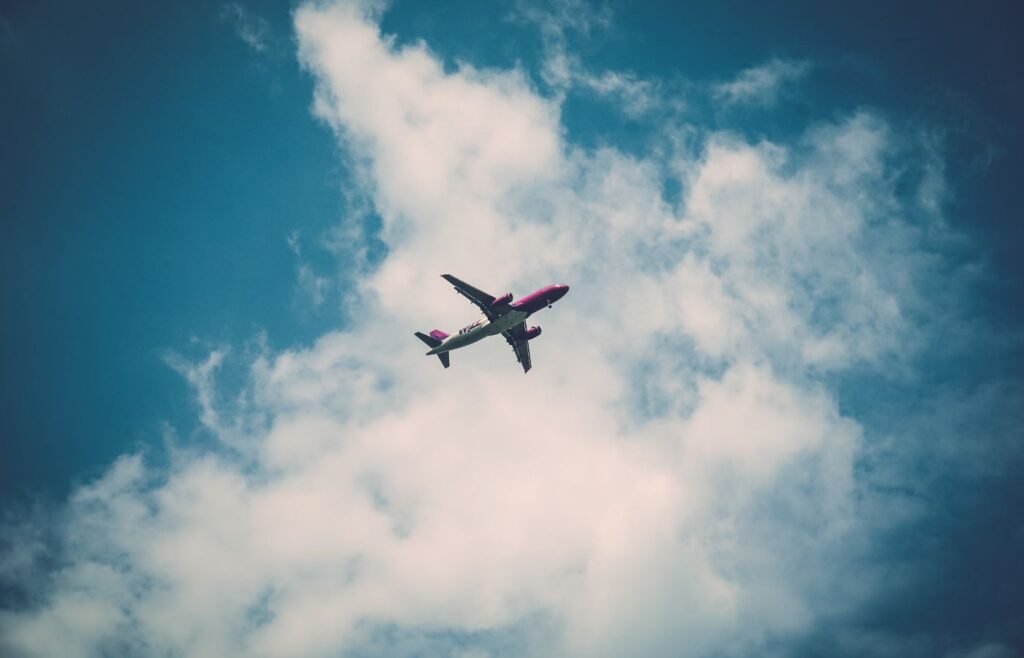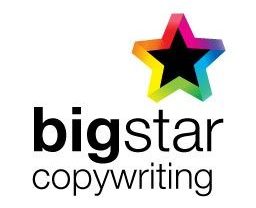The travel industry is incredibly competitive. In 2024, exotic holidays overseas compete with staycations; short breaks are beating longer breaks, and last-minute UK getaways booked spontaneously are taking the lead over long, thought-out trips abroad. All of this is going on while the cost-of-living crisis continues and tensions across the world create turbulence— this has caused the demand to travel to ease as the post-pandemic ‘revenge-travel’ trend fades away.
A survey by RSM reports that travel intentions in 2024 are changing; while 35% of Brits plan on taking a five-day trip overseas this year, 32% have their eyes set on a UK weekend away. However, both stats show a considerable decline in last year’s results. So, what does this mean for travel agents?
The short answer is that travel agent marketing strategies must adapt to industry changes. They need to analyse why their target customers are going away, the means of travel they are favouring, and the types of content that will force them to stop in their tracks.
The travel industry in 2024
In 2024, balancing budgets with the desire to travel is at the top of many customers’ minds. Like most industries, when financial anxiety hits, the impact can be significant and detrimental. For most, travel is a luxury, and while this doesn’t apply to every travel agent or company, those who cater to the everyday person need to be mindful of what travel really means to people. With this in mind, in 2024, we can expect customers to make more carefully considered decisions before they click ‘book’.
Consumers might:
- Spend more time comparing products
- Expect more personalised offers
- Find ways to blur the lines between business and pleasure
- Consider their environmental footprint
- Travel more when there is a special occasion to celebrate

The core response to these consumer actions is compelling content. Here’s why:
- At the core of product comparison are effective holiday descriptions and well-defined offers or processes to make your products stand out.
- At the heart of personalised offers is an effective email marketing plan that learns what your consumer wants to see.
- To want to blur the line between business and pleasure, holidaymakers need to be convinced that staying a few extra days in a hotel or resort is well worth their time.
- Customers need to feel that their worries are listened to and acted upon if they are concerned about their environmental impact so they can confidently book a hotel with a provider.
- Lastly, to persuade customers to travel—to spend their money—regardless of time or event to celebrate, they need to be 100% confident and reassured that they are making the right decision.
Nobody appreciates feeling like they’ve wasted money. And even though last-minute trips are becoming more popular and the time between discovering and decision lessens, your customers still want to be well-informed. In fact, we have a real desire to be well-informed. 81% of adults rely ‘a lot’ on their own research before making a major decision. And while travel isn’t – as a rule – particularly life-altering, when it’s pretty darn expensive, it’s in our nature to need to know. And that is where your travel agency marketing plan comes in.
The decline of traditional high-street travel agents and the rise of search
Within the next ten years, travel industry experts predict that the online travel space will expand at an annual rate of 3.8%, reaching an impressive $11.4 trillion. But with this in mind, high-street travel agents will continue to lose market share for booking holidays. A report by ABTA shows that four in five people use online searches to book their holidays. That’s 80% of consumers who’d rather book a holiday at their own leisure than rely on an in-person travel agent. But the real question is, why is this happening?
Thanks to the good old internet, holiday information and booking options are available to potential customers 24/7. Late-night browsing, spontaneous searching and lunch-break enquiries are now a given. Customers can decide in the moment, when it’s on their minds, instead of waiting until the high-street establishment opens its doors to the public. The bottom line is that it’s convenient, and we love convenient things.
There’s no doubt that search marketing is highly effective. Take a look at this:
- According to the Trends Global Survey, 80% of global travellers surveyed feel it’s essential to be able to book their trips entirely online, with 86% of Millennials and 83% of Gen Zers leading the charge.
- 76% of global travellers said they look for travel apps that reduce the friction and stress of travel, and by June 2023, travel app logins were 87% higher than by the end of 2019.
- Travellers spend over five hours consuming online travel content to seek inspiration and plan their trip in the 45 days before finally booking their journey.

With this in mind, should travel agents ditch their in-person presence altogether? The fact is, very few travel companies are clinging on to their high-street stores. Hays Travel and TUI are two more prominent brands still available to shop with in-store, and how long they’ll stick around is unknown. Independent holiday letting agents and travel agencies are likelier to stick to their in-person establishments, but the value for these smaller companies lies in the brand awareness of having a presence on the high street.
For these brands, customers tend to shop with them because they crave a personal and unique service, and an independent travel brand has the opportunity to offer just that. But it also comes down to your audience. For luxury travel, trips that last for months, or holidays catered for the older generations – in other words, those who aren’t stereotypically as computer savvy – an in-person travel agent may be what seals the deal.
Key marketing channels that travel agencies should consider in 2024
Last year, the top five online resources used by most travellers were:
OTAs (Online Travel Agency) (80%)
Search engines (61%)
Social media (58%)
Airline websites (54%)
Meta-travel websites (51%).
If a customer wants to book a holiday, the first place they will turn is the internet, and your company site is the most important thing you can invest in. But after that, a travel agency marketing plan should also consider:
- Social media platforms: Social media remains an indispensable tool for travel agencies to showcase their offerings, engage with potential travellers, and build a loyal community. Platforms like Instagram, Facebook, and TikTok offer immersive visual experiences that can transport audiences to exotic destinations with just a scroll—and social media works. According to Travel Perk, Social media had the greatest influence on leisure travellers’ travel destinations, with 75% of travellers saying social media posts inspired their trips to a specific destination in 2023.
- Content marketing and blogging: In the digital age, content is king, and travel agencies can harness the power of storytelling to captivate audiences and establish authority in the industry. Maintaining a vibrant travel blog that offers insightful destination guides, travel tips, and engaging narratives can not only drive organic traffic to your website but also position your agency as a trusted source of information.
- Influencer partnerships: Collaborating with influencers and travel bloggers can amplify your agency’s reach and appeal to niche audiences with authentic recommendations and first-hand experiences.
- Email marketing: Despite the rise of new digital channels, email marketing remains a cost-effective and highly personalised way to nurture leads, build relationships, and drive bookings. Travel agencies can leverage email automation tools to deliver targeted content, exclusive offers, and personalised recommendations based on user preferences and behaviour. And in 2024, personalisation is increasingly important. According to research by McKinsey, 71% of consumers expect companies to deliver personalised interactions. And 76% get frustrated when this doesn’t happen.
- PR: Travel agencies can secure valuable media coverage that highlights their unique selling points, latest offerings, and industry insights by writing compelling press releases, organising press trips, and pitching story ideas to relevant publications.
Before you create a marketing strategy for a travel agency
Do you want to create a marketing strategy for your travel agency but don’t know where to start?
You’ve likely been doing the odd thing here or there to get your brand in front of as many eyes as possible, but if you’re reading this blog, you’re either seeking inspiration or you’re here because your current strategy isn’t seeing much return. We’ll get to that marketing good stuff in a minute, but first, there are a few things you need to do before you create a travel agency marketing strategy.
Understanding your target audience
A deep understanding of your target audience is the cornerstone of any successful marketing strategy. Take the time to research and analyse the demographics, preferences, and behaviours of your ideal customers. Consider factors such as age, income level, travel preferences, and purchasing habits. By gaining insights into their needs, desires, and pain points, you can tailor your marketing efforts to resonate with your audience on a deeper level and drive meaningful engagement.
Defining a USP
There are thousands (if not hundreds of thousands) of travel agents worldwide. What makes yours different? In a crowded marketplace, defining what sets your travel agency apart from the competition is crucial. You need to identify your unique selling proposition (USP) – the distinctive value proposition that distinguishes your agency from others. This is because companies with a well-defined USP are 53% more likely to be seen as market leaders compared to those who don’t. Here’s how to write yours:
- Identify your agency’s core strengths, unique offerings, and areas of expertise.
- Conduct market research to understand your target audience’s needs, preferences, and pain points.
- Analyse your competitors to identify gaps in the market and opportunities for differentiation.
- Consider what sets your agency apart from competitors and why customers should choose you over others.
- Focus on specific features, benefits, or experiences that resonate with your target audience and address their unique needs.
- Craft a clear and compelling USP that succinctly communicates your agency’s value proposition.
- Ensure your USP is memorable, authentic, and relevant to your target audience.
- Test your USP with focus groups, surveys, or customer feedback to gauge its effectiveness.
- Continuously refine and evolve your USP based on market feedback, industry trends, and changing customer preferences.

Analysing competition
Conduct a thorough analysis of your competitors to gain insights into their strengths, weaknesses, and market positioning. You should identify key competitors in your niche and assess their travel marketing strategies, pricing models, and customer experiences. By understanding the competitive landscape, you can identify opportunities for differentiation, uncover market gaps, and develop strategies to outdo competitors.
Tools to help you perform thorough competitor analysis include:
Setting your marketing budgets
Determine your marketing budgets based on your business goals, target audience, and competitive landscape. You need to allocate resources strategically across various marketing channels, considering factors such as advertising costs, content production expenses, and personnel resources. Setting clear budgets ensures that you allocate resources efficiently and maximise the ROI of your marketing efforts. To set a clear marketing budget, you should:
- Clearly outline what you aim to achieve through your marketing efforts, whether it’s increasing brand awareness, driving website traffic, or boosting sales.
- Review historical data on marketing expenditures and their corresponding results to identify trends, successes, and areas for improvement.
- Research industry standards and benchmarks for marketing budgets within your sector to ensure your allocations are competitive and realistic.
- Based on your overall budget, revenue projections, and available resources, determine how much you can afford to spend on marketing.
- Identify the most effective marketing channels for reaching your target audience and allocate your budget accordingly, considering factors such as audience reach, engagement levels, and cost-effectiveness.
- Allocate a portion of your budget for testing new strategies, tactics, and channels to identify what works best for your business and optimise future allocations based on performance data.
- Continuously monitor the performance of your travel agency marketing campaigns and adjust your budget allocations as needed to capitalise on opportunities, address challenges, and maximise ROI.
How to stand out against the heavy competition
A quick note – with countless travel agencies vying for attention, standing out against the competition is paramount. Here are some strategies to bear in mind:
- Emphasise your unique selling proposition (USP) in your marketing messaging to highlight what sets your agency apart.
- Use storytelling to create compelling narratives that evoke emotions and resonate with your audience on a personal level.
- Offer personalised experiences and tailor-made itineraries that cater to your customers’ individual preferences and interests.
- Showcase your expertise and industry knowledge through thought leadership content, blogs, and educational resources.
- Provide exceptional customer service and cultivate strong relationships with your clients to foster loyalty and word-of-mouth referrals.
- Innovate and adapt to changing market trends by embracing new technologies, emerging destinations, and experiential travel offerings.
Five marketing strategies travel agents should consider
Invest in your travel agency’s SEO strategy
Last year, 72% of travellers said they preferred to book their trips online, compared to only 12% that preferred using a travel agency. With that in mind, making your site discoverable in SERPs should be at the top of your list. To do that, you need to invest in a robust tourism SEO strategy. By optimising your website for relevant keywords, improving site speed, and enhancing user experience, you can increase your chances of ranking higher in search engines and attracting qualified leads.
How to get started:
- Conduct keyword research to identify relevant keywords and phrases related to your travel services and destinations.
- Optimise your website’s meta tags, headers, and content with targeted keywords to improve search engine visibility.
- Invest in link-building strategies, such as guest blogging and outreach, to increase your website’s authority and credibility.
- Create high-quality, unique content that prioritises user experience and search intent at every level of the marketing funnel. This includes destination guides, travel itinerates, well-written product descriptions, infographics and packing lists.
A travel brand that does this really well? Take a look at Snaptrip.
Implement virtual reality experiences
It’s still in its infancy, but it’s a trend that is becoming increasingly popular. So much so that VR advertising is projected to achieve revenue of $174 million by the end of 2024. It’s not something that will be available to everyone, and determining whether you use it or not will ultimately depend on your customers and budgets. But if you can use VR, you should. Virtual reality (VR) offers a unique opportunity for travel agents to provide immersive and interactive experiences that allow potential customers to explore destinations and accommodations virtually. It’s a fancy way of ‘try before you buy’ and pretty fun too.
A travel agent that does this really well? Take a look at Marriott’s Teleporter.

Re-target people who *nearly* clicked ‘book’
77% of marketers use retargeting in their marketing campaigns, so why aren’t you? Retargeting allows travel agents to re-engage with potential customers who have shown interest in booking but did not complete the transaction, helping to recapture lost opportunities and drive conversions. It also works; retargeted users are 8x cheaper to reach per click.
How to do it:
- Implement tracking pixels on your website to identify users who have visited your booking pages but did not complete the booking process.
- Create personalised retargeting ads that remind users of the destinations or accommodations they are interested in and offer incentives, such as discounts or special offers, to encourage them to complete the booking.
- Use dynamic retargeting to display ads featuring specific destinations or properties users viewed on your website, increasing relevance and engagement.
According to Criteo, Bravofly and Interpark Tour increased their ROI and conversion rate using dynamic retargeting. Why not give it a go?

Create an informative blog
Blogging works. We will scream this all day, every day, until we are blue in the face. But blogging isn’t about quantity. If the latest Google algorithm update showed us anything, it’s that quality content wins the race. Always. Your travel blog needs to include thoughtful content that speaks to your audience; it needs to answer audience search queries and exist to serve a very specific purpose. We created an in-depth guide on blogging, but at a glance, to get started, you need to:
- Identify topics and themes that are relevant to your target audience, such as destination guides, travel tips, and industry trends.
- Develop high-quality, informative blog posts that address your audience’s common questions, concerns, and interests. Incorporate multimedia elements like images and videos to enhance engagement.
- Optimise your blogs for SEO by including well-researched keywords.
- Promote your blog content through social media, email newsletters, and guest blogging to increase visibility and attract traffic to your website.
For travel agencies that excel at blogging, check out AFAR magazine, Adventour Begins, and Virginia Travel Tips.
Use social media well
And lastly, in 2024, you need to be using social media well. Social media platforms may not drive direct sales, but they’re sure as hell a fantastic tool for increasing brand awareness. When the first stage of the marketing funnel is all about discovery, this is really important. Here’s why:
- Social media provides travel agents a powerful platform to showcase their offerings, engage with potential customers, and build a loyal community of followers.
- Research shows that 75% of customers use social media for travel inspiration.
- Social media offers the opportunity to reach new audiences who might otherwise not have discovered your brand.
- Social media opens the door to influencer partnerships and user-generated content.
To create an effective travel agency social media marketing plan, you should:
- Identify the social media platforms that are most popular among your target audience, such as Instagram, Facebook, and Pinterest, and focus your efforts on those channels.
- Share visually appealing content, including photos, videos, and user-generated content, highlighting destinations, activities, and experiences that resonate with your audience.
- Engage with your audience by responding to comments and messages, asking questions, and running interactive contests or polls.
- Encourage community members to share reviews and feedback – your community should be your biggest cheerleaders.
- For an in-depth guide to acing social media, read this blog.
Travel brands that are winning their social media game include Lonely Planet, Airbnb, Trending Travel, and Ryanair.

Tips and insider advice for running a successful marketing campaign
You could have the best ideas in the world, but your travel agency marketing plan will only ever be as good as the delivery. Here are our top tips for getting it right:
Know your audience inside out
- Understand your target audience’s demographics, preferences, pain points, and buying behaviours to tailor your messaging and strategies accordingly.
- Use market research, customer surveys, and data analytics tools to gain valuable insights into your audience and create more effective campaigns.
- Speak to your audience. Don’t be afraid to ask them what they want; find out what will genuinely help them, and they’ll thank you for it.
Set clear and measurable goals
- Define specific, achievable, and measurable goals for your travel marketing campaign, whether it’s increasing brand awareness, driving website traffic, or generating leads.
- Establish key performance indicators (KPIs) to track and evaluate the success of your campaign, such as conversion rates, click-through rates, and return on investment (ROI).
- For an in-depth tutorial on setting and tracking content goals, read our Ultimate Guide to Content Marketing.
Choose the right content mix
- Identify the most effective marketing channels for reaching your target audience based on their preferences, behaviour, and media consumption habits.
- To maximise reach and engagement, experiment with a mix of online and offline channels, including social media, email marketing, content marketing, SEO, paid advertising, and influencer partnerships.
- Don’t shy away from being a little experimental here. If something doesn’t work, let it go and move on.
Optimise your content for user experience
- As 60% of all online travel traffic comes from mobile, your site needs to be optimised for mobile devices.
- Prioritise user experience (UX) by designing intuitive, responsive, and user-friendly landing pages, websites, and digital assets to enhance engagement and conversion rates.

Test, learn and iterate
- Implement A/B testing and experimentation to identify what resonates best with your audience and refine your strategies and tactics accordingly.
- Continuously monitor and analyse campaign performance data to identify trends, opportunities, and areas for improvement, and adjust your approach in real time.
- Don’t be afraid to run with your wildest ideas. In the worst-case scenario, they don’t work, but in the best-case scenario, they really, really work.
Data and analytics are your friends
- Data is your best friend when creating your travel agent marketing strategy. Use data analytics tools and platforms to track and measure the effectiveness of your marketing efforts, gain actionable insights, and make data-driven decisions.
- Use data to segment your audience, personalise your messaging, and optimise your targeting and retargeting strategies for maximum impact.
Stay agile, adaptive and innovative
- Industry trends, technologies, and platform algorithms change, so your travel agency’s marketing plan must follow suit occasionally.
- Be agile and adaptable to changing market dynamics, consumer preferences, and industry trends.
- Embrace innovation and experimentation to stay ahead of the competition, explore new opportunities, and push the boundaries of your team’s creativity in your marketing campaigns.
Get external support
Lastly, an external SEO and content marketing agency is what you need to take your travel agency marketing to the next level. SEO and content specialists like Big Star Copywriting bring years of experience, strategic thinking and ideas to the table, helping you create compelling and persuasive content that resonates with your target audience. By outsourcing your content creation, you can access a team of professional writers who are skilled at what they do.
Conclusion
And while we’re on the topic, we’d love to help you level up your travel agent marketing. We’ve been helping businesses around the world sell more online since before the iPhone. We’re a small, talented copywriting agency that packs a punch, working side-by-side with business owners, CMOs and senior marketing professionals to help you achieve more with your content marketing and SEO.
To get your travel marketing strategy right, you need to:
- Really get to know your audience
- Re-target people who nearly booked
- Explore virtual reality experiences
- Create a thorough blogging strategy
- Invest in your SEO.
And if the last two points are on your mind for 2024 and beyond, get in touch – we can help.
